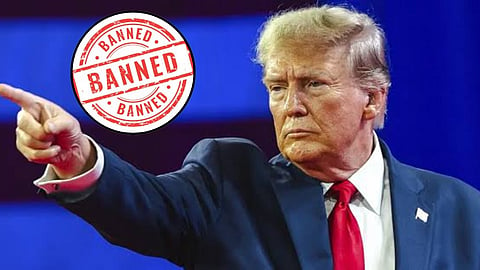Trump Administration Revokes Harvard’s License to Admit Foreign Students
The U.S. Department of Homeland Security (DHS) announced the decision on Thursday, stating that Harvard had failed to comply with federal requirements regarding international student documentation. As a result, no new foreign students will be allowed to enroll at the university, and existing international students face the possibility of being forced to transfer or leave the country.
The decision impacts approximately 6,800 international students currently enrolled at Harvard, including 788 from India. International students make up 27 percent of Harvard's student body for the 2024–25 academic year, making this a significant setback for the university and its global academic standing.
72-Hour Deadline for Disclosure
In its directive, DHS has given Harvard 72 hours to submit comprehensive information on all its international students, including academic records, visa documentation, and financial details. The agency cited “insufficient and unsatisfactory data” as the reason for revoking the university’s SEVP certification.
Students have been advised to seek admission to other SEVP-certified institutions immediately. Failure to do so could result in deportation, further exacerbating the uncertainty for thousands of students caught in the crossfire.
Escalating Tensions and Repercussions
The decision follows weeks of tension between the Trump administration and Harvard University over foreign student record compliance. The government had issued an April 30 deadline for complete documentation, which it claims the university failed to meet adequately.
With the SEVP certification revoked, Harvard is now legally barred from enrolling any foreign students, a move that is expected to send shockwaves through the international academic community. Education experts warn that such policies could severely damage the United States’ reputation as a global hub for higher education.
“This action may drive students to pursue education in other countries, such as Canada, the UK, or Australia,” said one international policy scholar. “It marks a fundamental shift in how the U.S. engages with global talent.”
What Lies Ahead
The coming weeks are expected to be crucial for the future of U.S. education policy. Stakeholders across academia and international diplomacy are calling for urgent dialogue to resolve the crisis. Whether the DHS decision is reversed or more restrictive measures are imposed, the global education landscape stands at a critical crossroads.
Harvard University has yet to issue an official response, but legal challenges are widely anticipated. With student futures hanging in the balance, all eyes will be on Washington as the situation develops.

